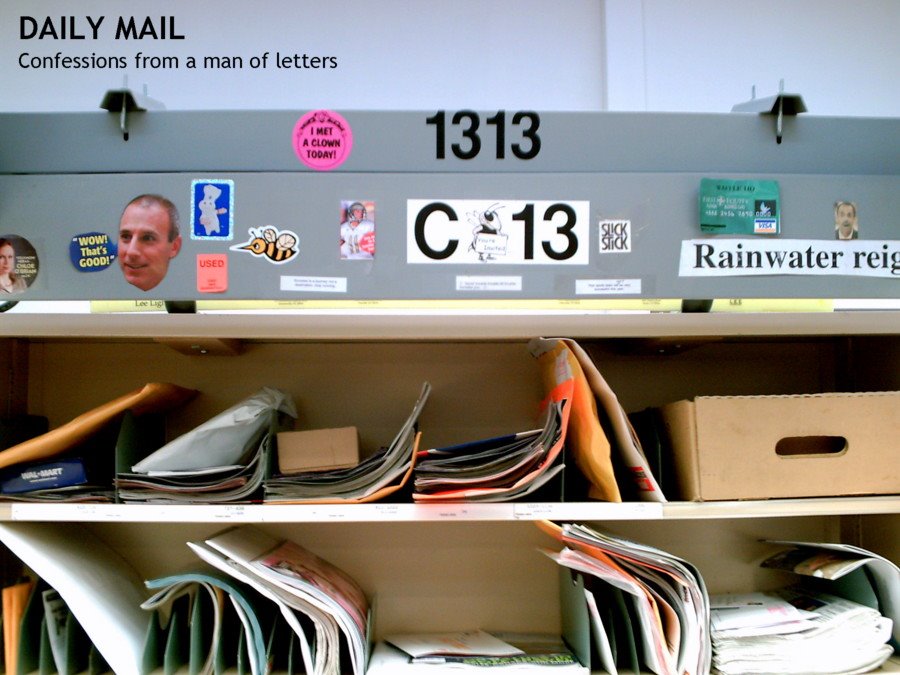Some Thoughts on Mother's Day
I'm sorry if you are expecting a sentimental post about how wonderful Mother's Day is--and how we should all really honor and remember our mothers every second Sunday in May. (Do we need a special holiday in order to keep the fifth commandment?) I guess I have a problem with these especially artificial holidays like Mother's Day, Father's Day, Grandparent's Day, Secretary's Day, etc. You can read a history of Mother's Day here and find out (if you didn't already know) that Mother's Day was first recognized as a national holiday after being signed into law in 1914 by Woodrow Wilson. Anna Jarvis, the woman whose lobbying led to Mother's Day, was disgusted by the commercialism that in short order sprung up around the holiday. In 1923 she even filed a lawsuit to stop a Mother's Day festival, and further she was arrested for disturbing the peace at a convention selling carnations for a war mother's group. Before her death in 1948, Jarvis is said to have confessed that she regretted ever starting the Mother's Day tradition.
Another reason I don't care for Mother's Day (and other such Sunday observances) is that it so easily distracts the Church from what the day is really about. Every Sunday is a holiday--a holy day--the Lord's Day, and the Church ought to be focused on the worship of Him, not the honoring of mothers. Additionally (though it is not the case this year) the second Sunday of May often coincides with the Church's celebration of Pentecost. So instead of scripture readings, songs, and sermons about the coming of the promised Spirit, we get the obligatory "Proverbs 31 Woman" message and a sappy song about how great mothers are.
I want to end this by quoting the concluding two paragraphs of Peter Leithart's article from Premise some years ago, "Against Christianity: For the Church." He has since expanded the article into a book. His conclusion comments on Mother's Day and Pentecost:
The pervasiveness of our worldliness, our failure to be a distinct people, is perhaps best illustrated from fairly trivial incidents. Several years ago, I spent Pentecost weekend with my wife in Savannah, Georgia. We switched on the television early Sunday morning, hoping to hear a Pentecost sermon. Instead, the television preacher was delivering a Mother's Day message, one that contained only a handful of moralistic allusions to the Bible while celebrating at length the mothers of famous Americans. I was most annoyed, however, at the preacher's apparent indifference to what is one of the chief days of the Christian year. At least, I thought, he could have combined Pentecost and Mother's Day by mentioning that the Spirit-filled church is the mother of believers.
Given the tremendous scandals that have rocked televangelism in the recent past, failure to preach about the Spirit on Pentecost Sunday hardly qualifies even as a venial sin. On reflection, however, I have come to see this incident as a crystallizing illustration of the profound accommodation that even the best American churches have made to the world. The church no longer functions as a distinct culture, with her own heroes and villains, her own memories and stories, her own ceremonies and symbols, her own rules and government. As I noted above, the church will always manifest much of the paraphernalia of the surrounding culture but American churches are too often simply extensions of the surrounding culture: Which is more prominently displayed in American evangelical churches, the American flag or the communion cup? What holiday is likely to receive the most attention, Ash Wednesday or the Fourth of July? Who is more a hero to American Christians, George Washington or St. Patrick? It will surely be a sign of the renewal of the church as Christian culture when the behavior of Christians improves, when Christians stop seeking abortions and stop sleeping around, when heresy and unbelief are rooted from the church. But I keep coming back to that Mother's Day sermon and I cannot shake the sense that the church's identity crisis will continue until she begins to pay more attention to her own calendar than to Hallmark's.





No comments:
Post a Comment